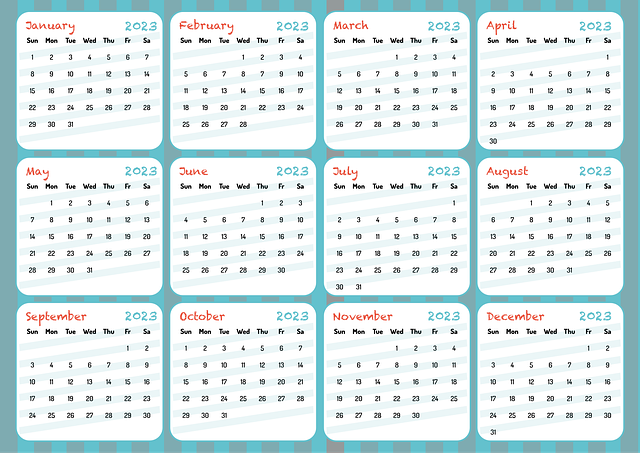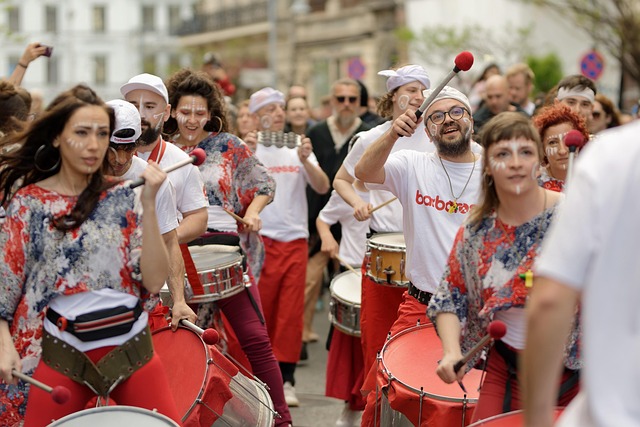Event planning for local businesses thrives on understanding community demographics and preferences. By analyzing these factors, organizers can create tailored event themes, activities, and partnerships that resonate with attendees. Building strong relationships with community leaders and utilizing communication channels ensures events align with local values, foster connections, support local economies, and create memorable experiences.
Local events tailored with precision and expertise leave a lasting impact on communities. This article explores the art of coordinating successful local gatherings, focusing on key strategies for event planners aiming to serve their communities. From understanding your audience and building local partnerships to strategic planning and execution, we uncover essential steps for event planning that cater to local businesses and enrich community life. Discover how these tactics contribute to memorable experiences and foster deeper connections within your region.
- Understanding Your Local Community: Key to Successful Event Coordination
- – Identifying target audience and their preferences
- – Building relationships with local community leaders and organizations
Understanding Your Local Community: Key to Successful Event Coordination

Understanding your local community is a cornerstone in event planning for local businesses. Events are more than just gatherings; they’re opportunities to connect with neighbors, support local economies, and strengthen community bonds. Successful coordination requires deep knowledge of your area’s demographics, cultural preferences, and unique needs. This involves listening to the voices within the community, understanding their interests, and tailoring events that resonate with them.
By aligning event themes, activities, and partnerships with local passions, organizers can create meaningful experiences. For instance, a farmers market event in a predominantly foodie neighborhood might feature renowned chefs, while a family-oriented festival in a suburban area would prioritize kid-friendly attractions and community games. This tailored approach ensures higher attendance, engagement, and ultimately, the success of your local business events.
– Identifying target audience and their preferences

When planning local events for businesses, understanding the target audience is key to success. Event planners must delve into the demographics and preferences of the intended attendees. This involves researching age groups, interests, and the community’s unique needs. For instance, a local tech startup might aim to attract young professionals, focusing on networking and industry insights. In contrast, an event for a historic landmark could cater to tourists and locals alike, offering educational workshops and cultural performances.
Identifying these preferences allows planners to create tailored experiences. This could mean selecting the right venue, designing engaging activities, and choosing marketing strategies that resonate with the audience. For local businesses, Event Planning is not just about organizing; it’s about connecting with their community in meaningful ways, fostering relationships, and ensuring a memorable experience that aligns with the target audience’s interests.
– Building relationships with local community leaders and organizations

Building strong relationships with local community leaders and organizations is a cornerstone of successful event planning for local businesses. These connections open doors to resources, venues, and support that can significantly enhance an event’s impact. By fostering partnerships, event planners can ensure their initiatives align with the community’s values and goals, fostering a sense of ownership and pride among attendees. Local business owners who actively engage with community leaders create a positive feedback loop that benefits both parties, as events become platforms for promoting local talent, products, and services.
Community engagement is key to creating memorable experiences that resonate with participants. Event planners should aim to involve diverse groups by understanding the unique needs and interests of different segments within the local population. This approach not only ensures broader appeal but also strengthens the community’s collective identity. Effective communication channels, such as social media groups, newsletters, and local forums, can facilitate ongoing dialogue and feedback, allowing event organizers to refine their plans and cater to the specific tastes of their target audience, thereby elevating the overall success of local business events.
Successfully planning events for local businesses requires a deep understanding of the community. By identifying your target audience’s preferences and fostering relationships with key community leaders, you can create events that resonate deeply. This strategic approach ensures event coordination without parallel in the local scene, fostering engagement and leaving a lasting positive impact on both the business and the community. When it comes to event planning for local businesses, this tailored strategy is the game-changer that drives success.














